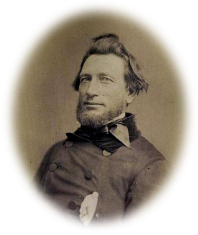6th.–This morning as my newly appointed nurses came in, I was utterly disheartened. There is not a man amongst them who can make a toast or broil a chicken; yet the sick must depend on them for all their cooking. Half of them are applicants for discharge on the ground of disability, yet they are sent to me to work over the sick, night and day, and to carry the wounded from the battle field. Not one has ever dispensed a dose of medicine, and yet I must depend on them for this duty. It is a dreadful thought to me that I must go to the battle field with the set which is now around me. Our sick, our wounded, our dying on the battle field will be from amongst my neighbors and my friends. To the parents of many I have made a solemn vow that their sons shall be properly cared for in times of trouble. Well, I will do the best I can, but when I have trained men to all the little offices of kindness and of care, even to the practice of lifting the wounded and carrying them smoothly on litters,[1] it is hard that they should now be taken from me, at the very moment of expected battle, and replaced by such as these.
This morning the men dismissed from my service for the heinous offence of loving me, came in to bid me good bye. When a long time hence, I read this, I find it written that we all wept, I may then feel ashamed of the weakness. I certainly do not now.
[1] For months, it has been a daily practice to take the nurses to the field and train them to lifting the sick and wounded, and even to the proper step in carrying them off the field. None but those who have witnessed it can imagine the difference in pain or comfort, which a certain kind of step will communicate to those carried on litters.
